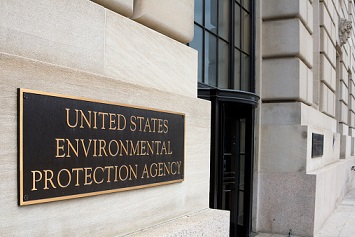In a final rule, the EPA has revised the Agency’s Freedom of Information Act (FOIA) regulations to incorporate amendments to the FOIA that Congress issued in 2007, 2009, and 2016. These are the first substantive changes the Agency has made to its FOIA regulations since 2002. Among the more important revisions, the rule clarifies which EPA officials may respond to FOIA requests and specifies that requests must be sent to the EPA’s FOIA office in Washington, D.C., and not to the Agency’s regional offices.
The EPA’s FOIA regulations at 40 CFR part 2 set forth the process and administrative rules by which the EPA handles FOIA requests. These regulations address such topics as where and how to make a FOIA request to the Agency; who within the Agency is responsible for responding to FOIA requests; how and when the Agency will respond to requests; how to appeal final FOIA determinations; how the Agency handles appeals; and how the FOIA fees are charged and processed.
SEJ Objects
The final rule was published without providing an opportunity for public comment, one of several aspects of the rule that the Society of Environmental Journalists (SEJ) objected to in a letter to the Agency. According to the SEJ, the Agency did not have “good cause” as defined under the Administrative Procedures Act to bypass public comment. In a response to the SEJ, the EPA said it had no discretion in making changes required by Congress; therefore, the revisions were procedural and not subject to notice and comment regulations.
The SEJ also objected to changes it alleges grant authority to the administrator to determine which records are “responsive” to a FOIA request. “This determination takes place entirely before the records are reviewed or redacted for legitimate FOIA exemptions,” argues the SEJ. “It is arbitrary and invisible, and virtually impossible to appeal, because the agency need not disclose to the requester what records were initially found or why they were deemed non-responsive.”
The EPA replied that FOIA determinations have always included decisions to withhold records or to issue no-records responses, and the updated regulations do not grant more power than the EPA’s prior regulations.
More Power to Political Appointees
Another “disturbing change,” according to the SEJ, centralizes final authority to grant or deny FOIA requests in the political parts of EPA headquarters. “By altogether removing the authority of Regional Offices to grant FOIA requests, this change will slow and hobble the agency’s already poor performance, in addition to politicizing the decision-making process,” the SEJ complained.
The is untrue, responded the EPA. “Under the updated regulation regional offices have the authority to grant FOIA requests,” wrote the Agency. “The updated regulation only centralizes the intake of FOIA requests to the National FOIA Office; it does not centralize the searching, reviewing, or production of records. The updated regulation, like the 2002 regulations, continues to provide regional administrators, their deputies, and delegates the authority to issue final determinations.”
Also, said the EPA, the decision to streamline submission of FOIA requests to the National FOIA Office will allow the EPA to ensure consistent and coordinated communication with the public, regions, and program offices. “Centralized FOIA intake and initial review will allow EPA to minimize coordination required for initial assignment of FOIA requests and to ensure consistency in early outreach to requesters,” wrote the Agency.
Fees, Tolling, and Liaison
Other changes included in the final rule address electronic FOIA requests; when the Agency may toll (i.e., stop) the 20-day time period for responding to requests; provide official information about the EPA’s FOIA Public Liaison; remove the list of exemptions from FOIA disclosure because the list is redundant with the 2009 amendments; clarify when the Agency may charge search fees; and also clarify the information the Agency must include in letters responding to FOIA requests (e.g., information about the FOIA Public Liaison and the right to file an administrative appeal).
The EPA notes that a second rulemaking will cover discretionary changes to its FOIA regulations, adding that it will “consider” taking public comment on those actions.

